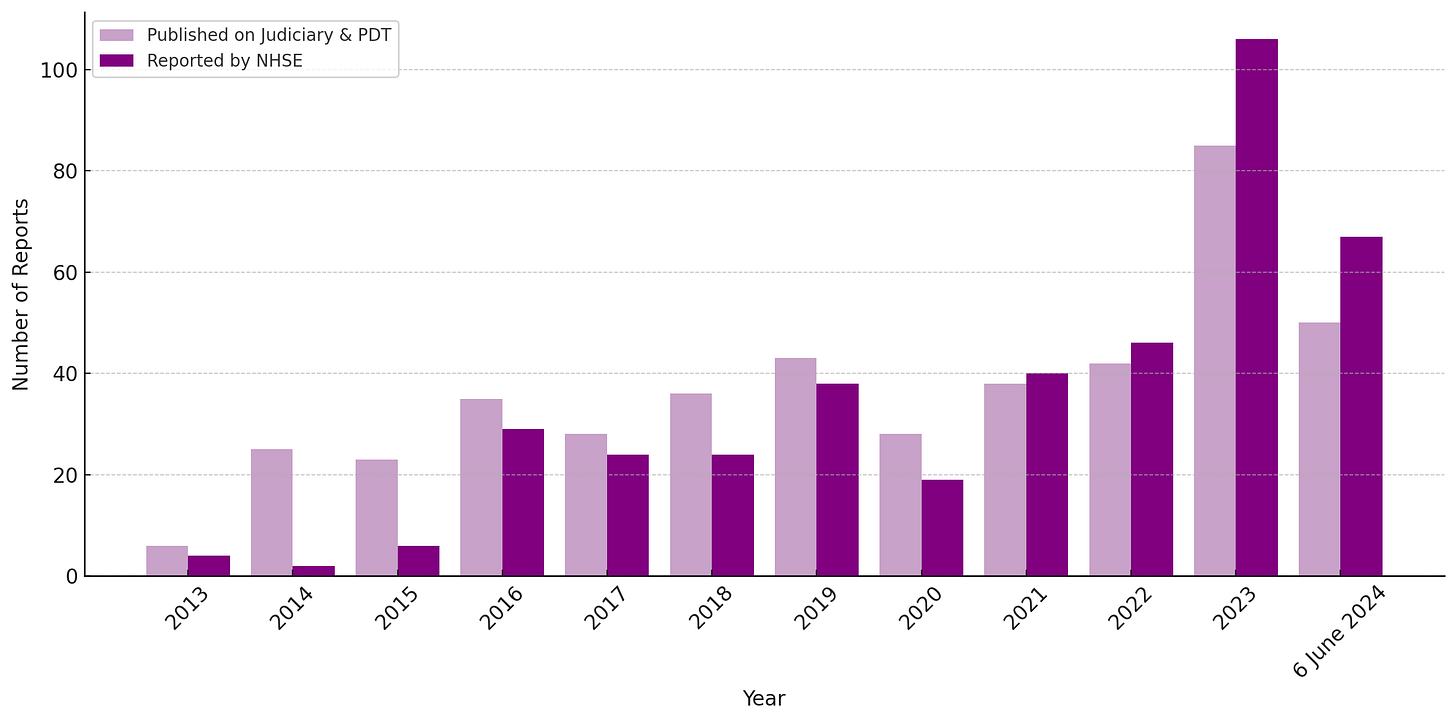Coroners in England and Wales have sent thousands of reports to organisations to take action following a death investigation. One of the organisations that has received the most reports, NHS England, will cease to exist.
Last month, the Health and Social Care Secretary, the Rt Hon Wes Streeting MP, announced plans to abolish NHS England. He stated that “The budget for NHS England staff and admin alone has soared to £2 billion. Taxpayers are paying more but getting less. We have been left with two large organisations doing the same roles with an enormous amount of duplication.”
The closure of NHS England raises important lessons for campaigners seeking to increase oversight by adding quangos. Additional layers of bureaucracy lead to “tensions, wasted time, and needless frictional costs“, burnt-out frontline staff drowning in micromanagement, and worse outcomes for patients and the public.
The excessive red tape meant that it took NHS England more than 11 years, since the publication of coroners’ reports, to publish its processes for reviewing and responding to coroners. Despite having a publicly funded ‘Regulation 28 Working Group’, the public was unaware of the number of reports NHS England received from coroners, and it is impossible to know what learnings or actions were taken, if any, following these deaths.
I’m bringing back the Preventable Deaths Tracker’s series on Deaths in the NHS, and today I begin with an analysis of reports sent to NHS England.
527 coroners’ reports
There have been several organisations merged into NHS England over the years, including NHS Improvement, NHS Digital, NHS Pathways/NHS 111, Health Education England and some functions of Public Health England. Collectively, they have received 527 reports from coroners to take action following deaths between July 2013 and April 2025.
285 responses
Every organisation that receives a coroner’s report must respond by law. Half of all the reports sent to NHS England have requested responses published on the Judiciary website. However, 99 reports remain overdue, and a quarter have some responses published, but not all.
Responses over time
Last year was the first time that NHS England had no ‘overdue’ responses, likely due to the Chief Coroner’s Office's initiative to publish the names of organisations that did not respond to coroners in 2024.
Variation in writing reports
For a national organisation like NHS England, you would expect every Coroner Area in England to have sent them a report to take action nationally to prevent future deaths. But this is not always the case.
Some coroners only send reports to local organisations. During the inquest, if a local organisation, such as an NHS Trust, presents enough evidence of changes made since the death, some coroners will choose not to write a report, regardless of the need for action nationally.
Missing reports
An investigation by the Preventable Deaths Tracker found that NHS England and the Judiciary website are missing reports. Between 2013 and 2020, 78 reports were not recorded by NHS England. Since 2021, 44 reports have been sent to NHS England by coroners but not published on the Judiciary website.
These 122 ‘missing’ reports are the result of sharing such life-saving information via email. There is a better way.
The Verdict
The current email-based “system” for sharing and publishing coroners’ reports and responses is a mess - it’s inefficient, inaccurate, and certainly won’t prevent future deaths. A national, centralised database of all inquests, routinely used by a resourced and highly skilled independent research unit, would ensure that every death, with or without a coroner’s report, is accounted for. Until then, the Preventable Deaths Tracker will keep tracking.








